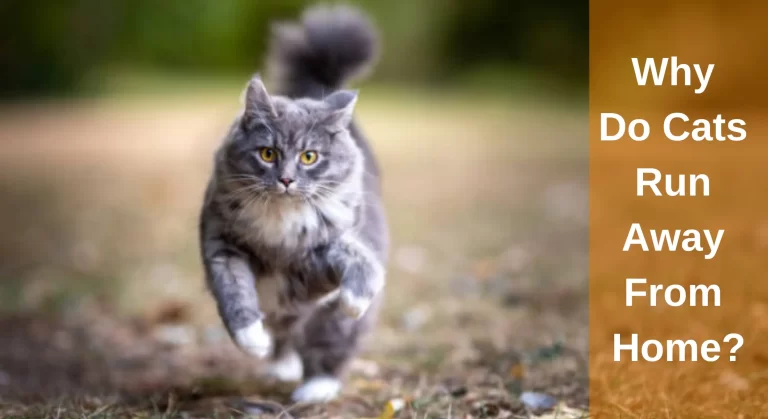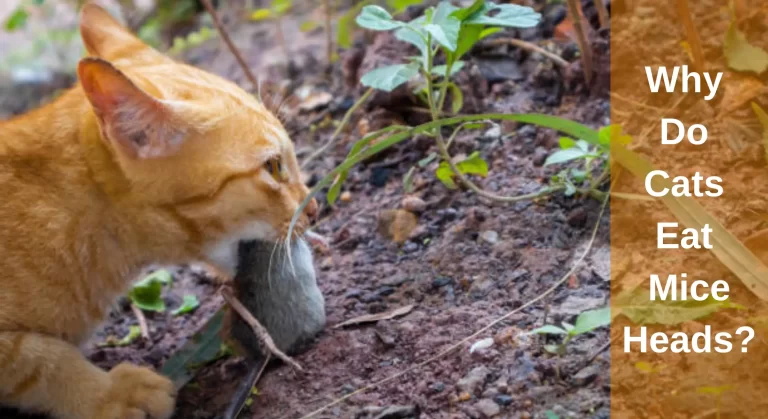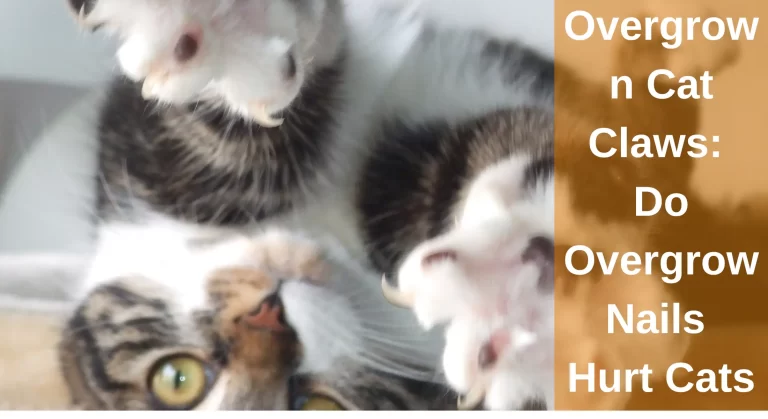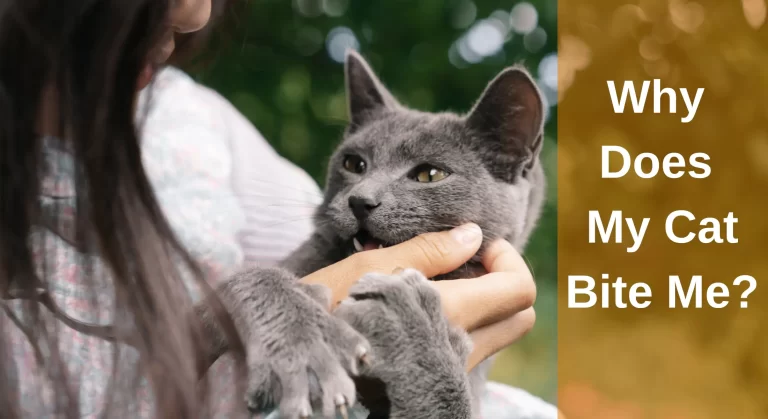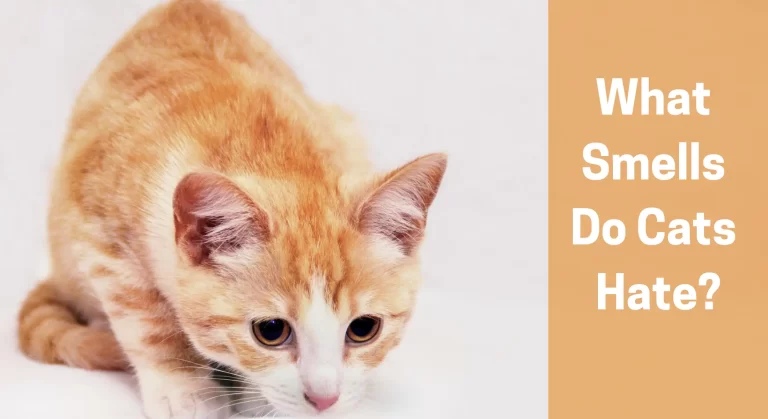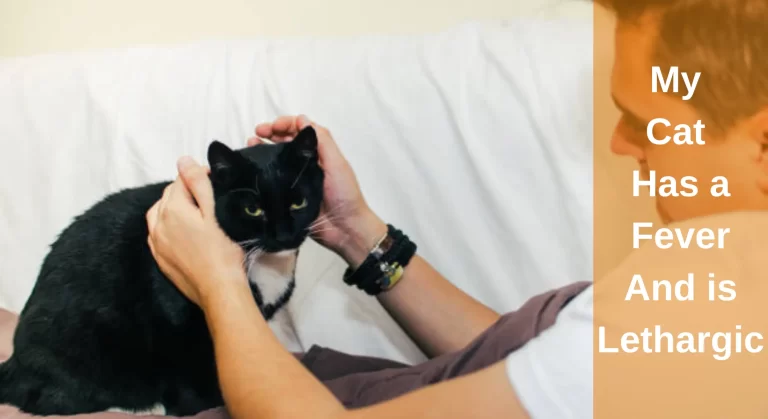Cat Not Eating or Drinking- How Long Can a Cat Survive?
All living things require food and water to survive, and cats are no exception. So when your cat stops eating and drinking, it is understandably problematic. If the condition persists, it can be deadly.
Cat Not Eating or Drinking- How Long Can a Cat Survive? Cats may go up to two weeks without food as long as they get enough water, but cats only have three days to live without both food and water.
This article is all about what happens if your feline friend won’t eat or drink, the reasons behind this bizarre behaviour and what you can do to help.
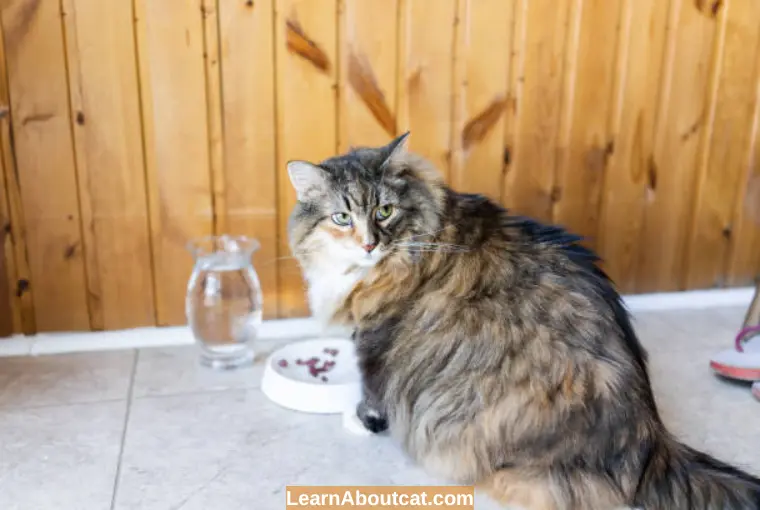
How Long Can Cats Survive Without Food And Water?
Your cat can live for a few weeks on water alone if it’s in good health. However, they will get progressively sicker and more lethargic as the days pass by. If your furry friend is already ill, this time is even shorter as the lack of food makes their health worse.
When water is taken away from the equation, their system shuts down much faster as it is affected by both starvation and dehydration. So a physically fit feline can only survive three days without food and water. This is why taking your cat to the vet is vital when you notice it hasn’t had anything in 24 hours. Your vet will most probably administer IV fluids and nutrition before examining your pet for a diagnosis.
Interesting Reading: Cat Is Eating And Drinking But Not Peeing Why?
How Long Can A Sick Cat Go Without Eating And Drinking?
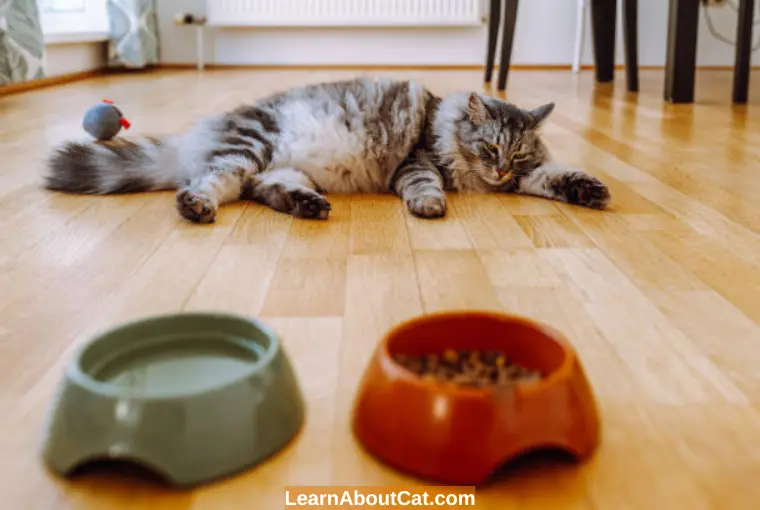
A healthy cat cannot go longer than three days without food or water. It can also live for up to two weeks if given only water. For sick cats, the scenario is a little different. When a cat’s body has a disease, it breaks down extra reserves of the body to fight off illness, so a cat that is sick will not survive long without food and water. If your cat is ill and has had no oral intake in the last 24 hours, you should rush them to the vet. The vet will administer intravenous fluids, which can be life-saving in this particular scenario.
How Long Can An Elderly Cat Go Without Eating?
A senior cat can survive up to ten days without food, provided that it is still drinking water. An aged cat cannot go more than two or three days without food or water. You need to ensure your senior cat eats properly, as they have less endurance than younger cats.
What Happens When a Cat Doesn’t Eat?
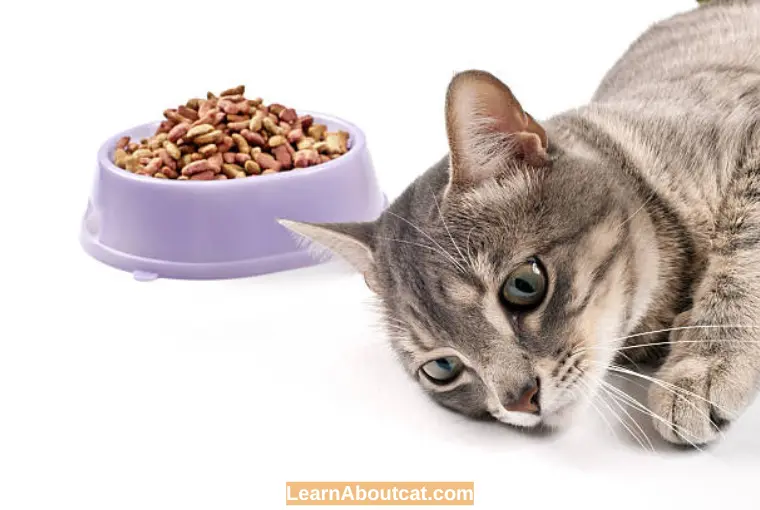
Cats, like all animals, get almost all their nutrition from food. The essential nutrient is protein. Protein is required for the synthesis of all vital structures and hormones. Because cats have low body mass, when it starts starving, it quickly runs out of fat reserves, and protein breakdown ensues, which is eventually life-threatening and causes two main problems:
1. Malnutrition
The catabolic state your cat goes through during starvation breaks down all fat reserves, and eventually, your pet’s body starts breaking down protein. This will make your kitty very skinny and skeleton-like. You will easily be able to feel its bones. With further breakdown, important organs will be affected, and the condition can get deadly very fast.
You Might Like to Read: Why Is My Cat Always Hungry But Skinny?
2. Hepatic Lipidosis
The liver is responsible for fat breakdown during this catabolic state. However, when a cat is in starvation, the liver has to work excessively. Since it is not designed to break down so much fat this fast, the overdrive leads to hepatic lipidosis, a condition that damages liver function with triglycerides that fill up the cells.
Older cats who refuse to eat are more at risk of this than younger cats. If your cat is suffering from diarrhoea and has no other symptoms, this could be an early sign. You will notice lethargy, excessive drooling, and yellow eyes and skin as the condition progress. Eventually, the liver shuts down, leading to liver failure, which is fatal.
Check Out: Why My Cat Not Pooping But Acting Normal And When To Worry?
What Happens When a Cat Doesn’t Drink?
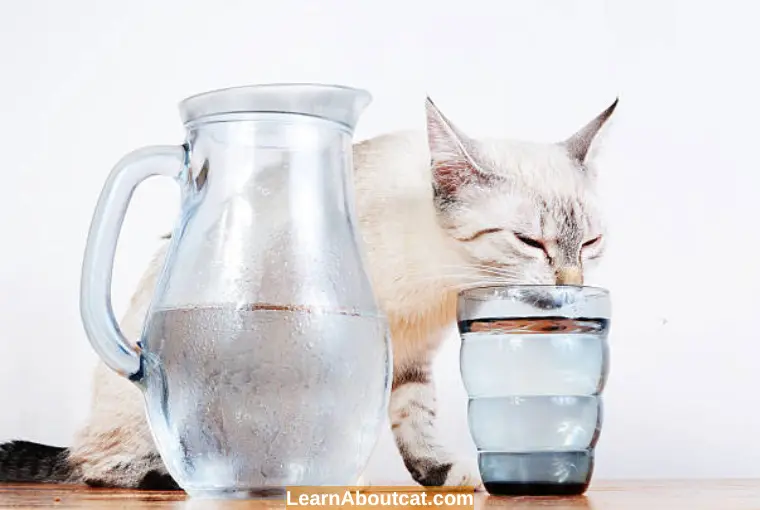
When your cat doesn’t drink, it leads to dehydration. Dehydration is the lack of water in your feline’s body. It can lead to renal failure. Without kidney function, toxins accumulate in your pet’s system, which can cause vomiting, confusion, restlessness, hiding and seizures. If you notice your cat is drinking but not peeing, this is a sign of kidney problems. It would be best if you rushed to the vet as prompt administration of IV fluids can reverse some of the kidney damage.
1. Acute Kidney Failure
This occurs due to dehydration. The kidneys are unable to concentrate, and the excess strain and toxins damage the organs. Without their function, all the poisonous substances are retained in the cat’s body, causing nasty symptoms like vomiting, confusion, restlessness and seizures.
Also Read: Cat Keeps Going to the Litter Box But Nothing Happens
2. Heart Failure
Because of the lack of water and thickened blood, the heart works twice as hard to circulate blood throughout your pet’s body. Staying in a state of increased heart rate and blood pressure eventually damages the heart and causes heart failure. Senior cats are more prone to this condition.
Why Is My Cat Not Eating or Drinking?

Of course, eating and drinking are normal processes. A physiologically normal animal will feel hunger pangs and will sprint for food. So if your cat is not eating or drinking, it is definitely concerning. There are several conditions that prevent your furry friends from eating and drinking:
1. Diseases
Like how we don’t feel like eating or drinking when we are ill, cats go through the same when they are sick. Loss of appetite is a symptom of many conditions, some of which are mentioned below:
- Worms: If your feline friend’s intestine is infested with parasitic worms, it impairs the normal digestive process and causes abdominal pain. It can also cause vomiting, so it’s no wonder why your cat doesn’t want to eat anything.
- Dental Problems: Dental diseases like gingivitis, periodontitis, and tooth resorption can cause extreme discomfort while chewing, which makes your pet avoid food altogether. You can try giving soft treats or chicken broth. If they eat that easily, it may be a sign of dental issues.
- Pancreatitis: The pancreas is an organ that produces enzymes that are required for digestion and hormones for regulating blood glucose levels. When the pancreas becomes inflamed, it affects digestion, which affects your feline’s appetite.
Also, Check Out: Why Is My Cat Throwing Up Undigested Food?
2. Stress and Anxiety
Because cats are creatures of habit, even small changes in their environment or food might worry them. Along with the loss of appetite, you may notice other signs such as withdrawal, hiding, overgrooming, not using the litter box and sleep disturbances.
Cats can get anxious about the slightest changes, like if construction is happening nearby or a new addition to the family arrives. Other things that can cause stress in cats are a new pet, moving houses, changing their food and car travel.
3. Vaccinations
If you recently vaccinated your pet, this may be why they refuse to eat or drink. While vaccinations are vital to prevent dreadful diseases, they can have temporary side effects, one of which is a loss of appetite. However, unlike the reasons discussed above, this is temporary, so it is nothing to worry about.
Find Out: Why is My Cat Drinking a Lot of Water and Meowing?
What to Do If My Cat Won’t Eat or Drink?
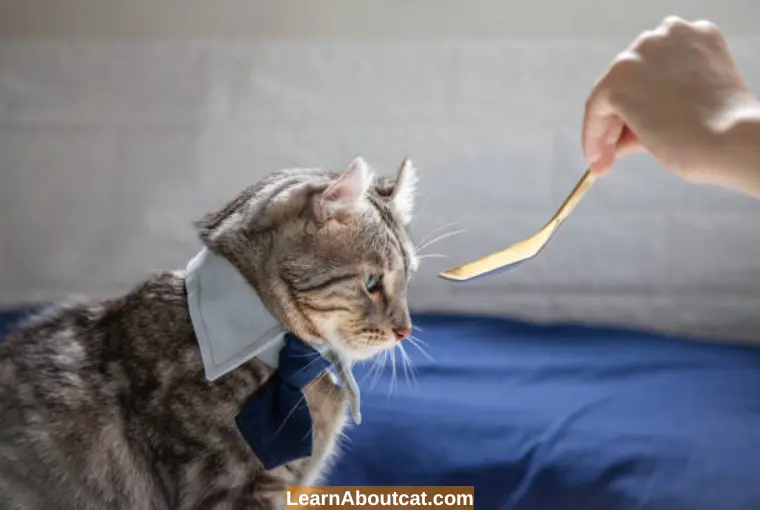
If your cat continues to avoid intake, it will get progressively sick. Nutrition is vital for a healthy, energetic cat. By not eating, your cat’s body will go into a catabolic state, and its condition starts to deteriorate quickly. It can be fatal if your cat doesn’t eat for three days.
If your cat hasn’t eaten in 24 hours, you should rush them to the vet so that IV access can be established and nutrition can be administered through an intravenous route instead. The following are some ways you can help your pet through this difficult time:
Feed Your Furry Companion With Your Hands
If you give small pieces of food from your hand and put them up to its mouth, it is more likely to eat than from the bowl. This is a good option for sick cats.
Choose Strong-Smelling Foods that they like
Because cats have a very strong sense of smell, giving them something that smells appetizing can help. You can try tuna or sardines.
Flavorize their Water
As mentioned above, cats have a very strong sense of smell, so adding a few tablespoons of chicken broth to their water can work up their appetite and make them want to hydrate.
Use a Cat-Specific Water Fountain
In comparison to stagnant water, cats prefer rushing water. This is their primal instinct, as running water does not contain the harmful bacteria and algae that stagnant water does, so investing in a cat water fountain might entice your pet to drink water.
Change the Location of their Water Bowl
When it comes to drinking water, cats have high standards. They will just refuse to drink if it is too close to their litter box. Similarly, keep it away from the food bowl as chunks of food can go into the water, and switch it out often so the water stays fresh.
Frequently Asked Questions
The Bottom Line on Cat Not Eating or Drinking
Your cat’s life is in great danger if it has not had any oral intake for three days. It would be best if you took your feline to the veterinarian so that it could receive urgent intravenous fluids. Many health conditions can cause your cat to lose their appetite, so a veterinarian can make the appropriate diagnosis and tell you how to manage your feline’s condition.
Related Posts:
Who is Isabella?
My name is Isabella, and I am a dedicated and knowledgeable cat enthusiast. With years of experience caring for cats and a deep love for felines, I made a mission to help other cat lovers navigate the challenges of cat ownership.

